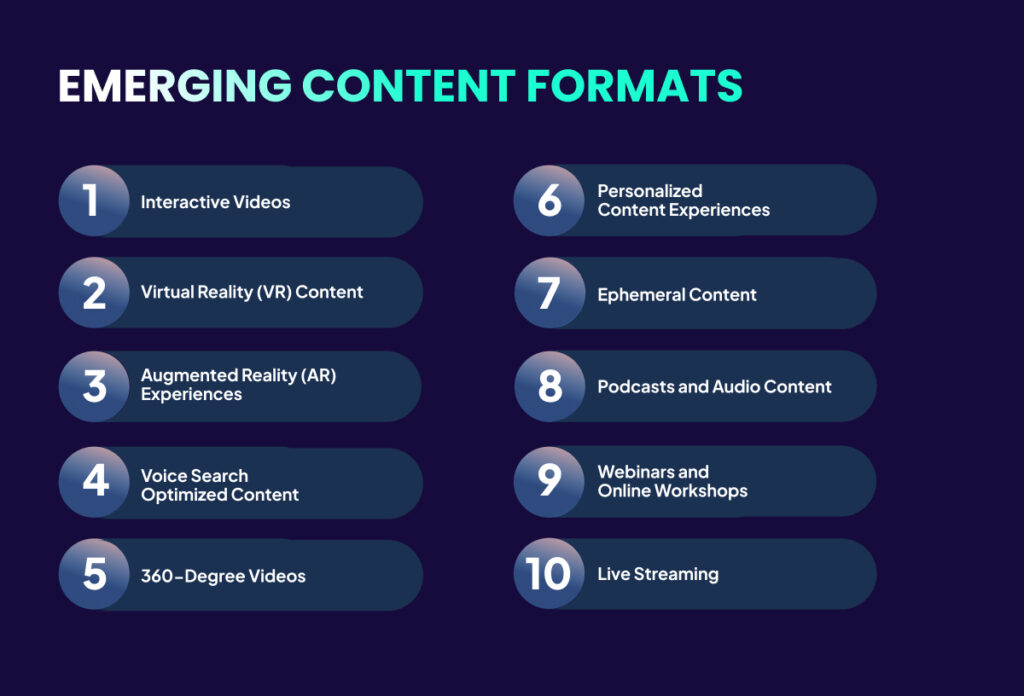Download Our FREE Guide
As startups look for the best ways to grow, having a solid growth strategy is like having a map that helps them navigate the tricky path of expanding their business.
This strategy combines different aspects of business growth, marketing, and product innovation into a unified approach aimed at long-term growth.
Startup content marketing helps build trust and credibility with your target audience by providing them with relevant and helpful information that meets their needs and solves their problems. 82% of marketers are actively investing in their content marketing strategy and this number is increasing.
This draws in the right audience and keeps them engaged, leading to profitable customer actions.
But, the power of content marketing for startups lies not just in using but planning and executing it strategically.
Whether aiming to boost brand awareness, generate leads, or become a thought leader in your field, [A] Growth agency, a growth marketing agency is a reliable partner to master the complex world of content marketing and achieve unparalleled sustainabl your startup growth.
Understanding Content Marketing: Beyond Just Blogging

Startup content marketing goes way beyond just blogging. It includes a variety of formats like videos, podcasts, social media posts, infographics, webinars, and email newsletters, each tailored to different audience preferences and habits.
You must have a growth mindset for that, as this variety helps broaden your reach and impact.
Blogs work well for SEO, educating your target audience, and showing your expertise in your field. They’re adaptable, covering everything from tutorials to industry news.
Videos are engaging and can explain your products or services in a lively way. They boost engagement and spread quickly online, increasing your brand’s visibility. 73% of people say that they prefer to learn about a product or service from a short video.
Podcasts are increasingly popular for their personal touch and convenience, offering in-depth discussions, expert interviews, and storytelling that enhances your brand’s connection with the audience.
In the USA, 64% of people have listened to a podcast, 46% have listened to it during the last month, and 31% have listened during the last week.
Social Media platforms provide a direct line to interact with your audience, allowing instant feedback and engagement.
It’s essential for promoting your brand, building a community, and sharing various types of content.
The success of content marketing for startups hinges on creating content that��’s both high-quality and relevant:
Quality means your content is well-researched, engaging, and presented professionally. It should provide value, whether it’s to inform, entertain, or solve a problem.
Relevance is about ensuring your content matches your audience’s interests and needs.
It involves understanding your audience well, including their preferences, challenges, and the types of content they prefer.
The effectiveness of startup content marketing is measured by reach, the actions it inspires, and the relationships it builds.
Read also law firm content marketing.
Read also healthcare content marketing.
Read also content marketing for SaaS.
Read also content marketing for tech companies.
Read also content marketing for ecommerce.
Laying the Foundation: Content Marketing and Brand Identity

In a world flooded with marketing messages, having a distinct brand identity helps you stand out and connect more deeply with your audience.
A growth marketing consultant or a growth marketing managercan guide you in sharing your unique brand story, values, personality, and vision through various content forms, creating a solid brand identity that your target audience relates to.
Building Brand Identity with Content
Each piece of content—whether a blog post, video, or social media update—defines how people see your brand.
The tone, images, and overall feel should consistently reflect your brand identity.
This consistency across all platforms helps build recognition and loyalty among your audience.
Content marketing for startups offers a stage to showcase what makes your startup unique, like your innovative marketing strategies, commitment to sustainability, or top-notch customer service.
By creating content that aligns with your brand’s core values and mission, you effectively share what you stand for, attracting customers who value the same things. Growth marketing solutions can help you tailor this content to maximize impact.
The Power of Storytelling
Content marketing for startups lays the groundwork for your brand identity.
It lets you express and spread your brand’s story, values, and personality, ensuring your audience gets and connects with your stand.
It creates narratives that resonate with your audience through customer success stories, behind-the-scenes looks, or content that speaks to their needs and dreams.
This not only increases brand affinity but also builds trust and loyalty.
Moreover, storytelling sets your brand apart in a crowded market.
When customers have to choose between similar products or services, a compelling brand story can tip the scales in your favor. This is a part of personalized marketing.
Using content marketing for startups to tell your story attracts and keeps customers who strongly bond with your brand.
Driving Organic Traffic: SEO and Content Marketing Synergy

Understanding the basics of SEO in content creation and employing strategic tools and techniques for SEO optimization are essential steps in maximizing the reach and effectiveness of your startup content marketing efforts.
A growth marketing consultancy can help you in this case.
Basics of SEO in Content Creation
SEO starts with understanding what your target audience is searching for online.
This involves researching keywords and phrases that potential customers use when looking for products, services, or information related to your business.
Incorporating these keywords naturally into your content helps search engines understand and index your pages, making it easier for users to find your content in search results.
However, SEO extends beyond just keywords. It encompasses a variety of factors, including site speed, mobile responsiveness, user experience (UX), and internal linking.
All these elements are crucial in determining your website’s search engine rankings. Content creators must ensure their content is keyword-rich and aligned with these broader SEO principles.
Using Keywords and Topics to Drive Targeted Traffic
Identifying and integrating keywords and topics into your content strategy can significantly enhance its visibility and attract more targeted traffic.
Once you’ve identified your target keywords, naturally incorporate them into titles, headings, meta descriptions, and throughout your content.
This topic-focused approach, often referred to as pillar and spoke, involves creating a comprehensive piece of content on a core topic (pillar content) and linking it to related but more specific content (spoke content).
Tools and Techniques for SEO Optimization
Effective SEO optimization requires the use of various tools and techniques.
Growth marketing agencies use these essential tools:
- SEO Platforms: Tools like Moz, SEMrush, and Ahrefs offer comprehensive features for keyword research, competitor analysis, backlink tracking, and SEO audits.
- Keyword Research Tools: Google Keyword Planner and Ubersuggest are great for finding keywords and understanding search trends.
- Content Optimization Tools: Yoast SEO (for WordPress users) and Clearscope help optimize content based on SEO best practices.
Some techniques for SEO optimization include
- On-Page SEO: Ensuring that each piece of content is optimized for search engines, including using meta tags, alt text for images, and structured data.
- Quality Backlinks: Building a portfolio of high-quality backlinks from reputable sites in your industry to improve your site’s authority and ranking.
- Regular Content Updates: Keeping your content fresh and up-to-date signals to search engines that your site is relevant, improving your ranking over time.
This synergy is essential for maximizing the impact of your content marketing efforts and supporting your startup’s growth objectives.
Engagement and Retention: Creating Valuable Content for Your Audience

In the realm of startup content marketing, engagement and customer retention are key indicators of success, reflecting the ability of your content not only to attract but also to maintain the interest of your audience over time.
Types of Content That Engage and Add Value
How-To Guides:
These provide step-by-step instructions to solve common problems or accomplish specific tasks related to your industry.
Infographics:
These are particularly effective for summarizing complex information, trends, or data, making them engaging and shareable.
Infographics work well in social media posts and can enhance the readability of the blog post by breaking up text and illustrating key points.
Industry Insights:
High-quality content that delves into industry trends, challenges, and innovations demonstrates your expertise and can engage professionals looking to stay informed and ahead in their field.
Case Studies and Success Stories:
These narratives showcase your product or service, highlighting how customers have benefited from your offerings.
Interactive Content:
Quizzes, polls, surveys, and interactive videos invite audience participation, making the content experience more engaging and personalized.
Here’s where you can consider hiring a marketing agency to help you create high-quality content.
The Role of Analytics in Understanding Audience Engagement

Analytics tools, such as Google Analytics, social media insights, and content management system (CMS) reports, offer a wealth of data on how your audience interacts with your content.
Key metrics to monitor include:
Page Views and Unique Visitors:
These metrics provide a basic understanding of the reach of your content and how many individuals are engaging with it.
Time on Page:
The average time spent on a page can indicate interest and engagement with the content.
Bounce Rate:
A high bounce rate might suggest that visitors are not finding what they’re looking for or that the content is not engaging enough to keep them on the page.
Social Shares and Comments:
High social shares and comments are strong indicators of content that resonates with your audience, suggesting that it is valuable and worth discussing and sharing.
Conversion Rate:
This measures how effectively your content drives desired actions, such as newsletter sign-ups, downloads, or purchases, indicating its value to your audience.
By closely monitoring these metrics, you can gain insights into what types of content are most engaging for your audience, which topics generate the most interest, and where there may be opportunities for improvement.
Lead Generation: Optimized Content Strategies

An optimized approach involves understanding the content marketing funnel—Awareness, Consideration, and Decision—and implementing strategic CTA placements and content types for effective lead conversion.
Simplified Content Marketing Funnel
Awareness:
Target potential customers at the outset of recognizing their needs with educational blog posts, infographics, and social media content. 70% of people get information from blogs than traditional advertisements.
Consideration:
Engage those evaluating solutions with webinars, case studies, and guides on how your products or services solve their problem.
Decision:
Drive ready-to-buy customers to choose you with free trials, demos, testimonials, and detailed product benefits.
Optimizing CTAs and Content for Leads
CTA Placements:
Place CTAs strategically at the end of posts, within articles, on sidebars, or as value-offering pop-ups to encourage action.
Lead-Generating Content Types:
Focus on e-books, guides, webinars, and email newsletters that require sign-up, offering valuable resources like templates or reports in exchange for contact information.
You can streamline lead generation by tailoring content to each stage of the buyer’s journey and using CTAs effectively.
Scaling Content: Automation & Strategic Distribution

Efficiently scaling your content efforts is crucial for growth. Utilize automation tools for content creation and distribution, and choose the proper channels to maximize reach and engagement.
Download Our FREE Guide
Automation Tools
Content Creation:
Use tools like Grammarly for editing and AI-driven platforms for generating content ideas and drafts, with human oversight for quality.
Distribution Automation:
Platforms like Hootsuite and Mailchimp automate posting across social media and email campaigns, saving time and ensuring consistency.
Selecting Distribution Channels
Social Media: Choose platforms based on where your target audience is most active – Instagram for visuals, LinkedIn for B2B content, etc.
Email Marketing: Use segmented lists for personalized content delivery, enhancing engagement. 71% of marketers rely on email engagement to evaluate content performance.
Guest Blogging: Expand reach and credibility by contributing to reputable blogs in your industry that align with your audience and values.
KPIs for Effective Content Marketing Strategy

Tracking Key Performance Indicators (KPIs) is essential to gauge how effetive the content marketing for startups is and refining strategies for better outcomes.
Key KPIs to Monitor
Traffic: Indicates the volume of visitors, highlighting the reach of your content.
Engagement: Measures interactions like time on page, comments, and shares to assess content resonance.
Conversion Rates: Tracks how well content converts visitors into leads or customers, directly impacting ROI.
Using Data to Enhance Strategies
Traffic Sources: Identify where your audience comes from to tailor content distribution.
Engagement Patterns: Create content types that drive the most interaction.
Conversion Analysis: Understand the visitor-to-conversion journey to optimize content paths.
Future Trends in Content Marketing for Startups

Staying ahead in content marketing for startups requires embracing emerging formats and platforms to engage audiences effectively. Here’s a snapshot of the key trends shaping the future:
Key Emerging Formats
Interactive Videos & 360-Degree Videos: Boost engagement by letting viewers interact or explore panoramic views.
VR and AR Experiences: Create immersive or enhanced real-world experiences for unique storytelling.
Voice Search Optimized Content: Adapt content for voice queries to improve visibility.
Personalized Content: Use data to tailor experiences, enhancing engagement and conversions.
Ephemeral Content: Utilize short-lived content on platforms like Instagram Stories to create urgency.
Podcasts, Webinars, & Live Streaming: Offer personal, educational, and real-time content to engage audiences.

Platforms to Leverage
Mainstays: Instagram, Facebook, Twitter, and Snapchat for diverse content types.
Rising Stars: TikTok for short-form videos; Clubhouse for audio content.
Niche Networks: LinkedIn for professional content; YouTube for videos; Spotify and Apple Podcasts for audio; Oculus for VR.
Choosing the Right Path for Your Startup
If you don’t have an in-house team to do your startup content marketing, you may think about in house marketing vs agency.
In-house marketing gives you complete control over your strategies and brand voice. However, building a skilled team can be costly and time-consuming.
Agencies typically are more cost-effective, bringing a wealth of experience and resources to the table, often providing faster results.
When considering agency vs freelancer, freelancers can offer specialized skills at lower costs. Yet, they might lack the broader expertise and resources that an agency provides.
And here comes the question: how to choose a digital marketing agency?
Focus on their experience with content marketing for startups, look at their success stories, and ensure they align with your brand values and understand your industry.
Check their portfolio and client reviews. Good communication is key, so make sure they offer clear and regular updates.
Your Way of Being Noticed

The path from getting noticed to making sales is complex and requires a mix of creativity, data analysis, and keeping up with new trends and tech.
Azarian Growth Agency, a growth marketing agency, is on top of all the latest trends in content marketing for startups, ready to guide your startup through the fast-changing digital world.
Like in any marketing agency onboarding process, it’s essential to ensure that every aspect of your content marketing strategy is meticulously planned and executed.
Our growth marketing team focuses on crafting content that engages your audience and delivers impactful results.
Check these questions to ask a growth agency to ensure we’re the best fit for your startup.
Don’t let your content marketing efforts go unnoticed. Let’s make your dream a reality, one content piece at a time.

